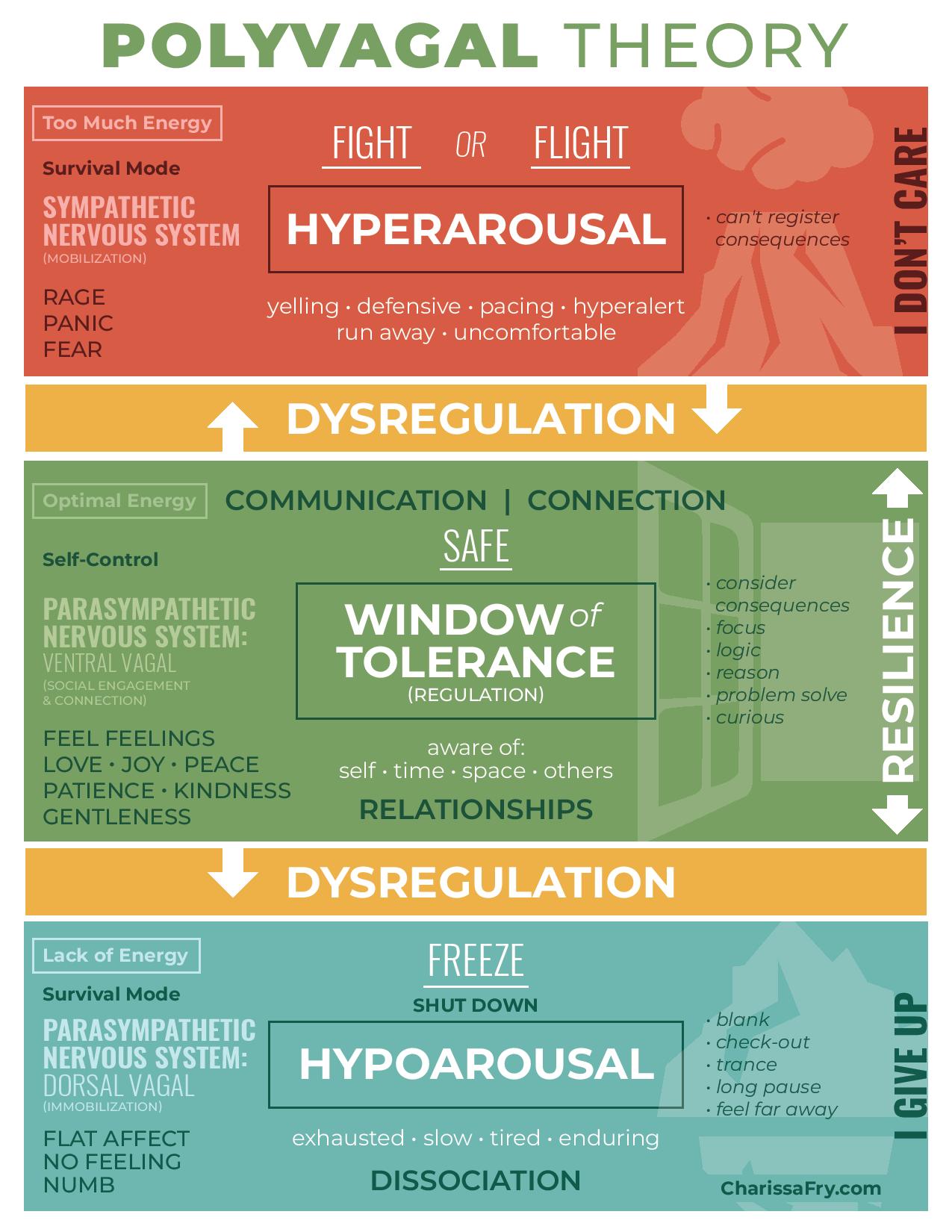The Science of Safety: Polyvagal Theory and Mental Health
FACT CHECKED ✅
Polyvagal Theory, developed by Dr. Stephen Porges, offers a novel perspective on the human autonomic nervous system and its impact on mental health. This article reviews the theory's implications for understanding and treating mental health disorders, providing an overview of current research. By exploring the mechanisms of the vagus nerve and its role in regulating emotional and physiological states, more effective therapeutic interventions can be developed to enhance mental well-being.
 |
| Dr. Stephen's theory offers a novel perspective on the human autonomic nervous system and its impact on mental health. (📷: adaptablelabs) |
Polyvagal Theory, introduced by Dr. Stephen Porges in the 1990s, has revolutionised our understanding of the autonomic nervous system and its role in mental health. By focusing on the vagus nerve, the theory explains how our physiological states influence our psychological experiences. This article synthesises recent research on Polyvagal Theory, highlighting its implications for mental health and therapeutic practices.
Theoretical Foundations
Polyvagal Theory posits that the autonomic nervous system is divided into three distinct branches: the ventral vagal complex, the sympathetic nervous system, and the dorsal vagal complex. These branches are responsible for regulating different physiological and emotional states, ranging from social engagement to fight-or-flight responses and shutdown states. The theory emphasises the importance of the ventral vagal complex in promoting social connection, safety, and calmness.
 |
| (📷: charissalopez) |
Mechanisms of the Vagus Nerve
The vagus nerve, the tenth cranial nerve, plays a crucial role in Polyvagal Theory. It acts as a communication highway between the brain and various organs, influencing heart rate, digestion, and respiratory rate. Research shows that stimulating the vagus nerve can enhance parasympathetic activity, leading to reduced stress and improved emotional regulation. Techniques such as deep breathing, meditation, and vagus nerve stimulation are being explored for their therapeutic potential.
Impact on Mental Health
Polyvagal Theory provides a framework for understanding how disruptions in autonomic regulation contribute to mental health disorders. Conditions such as anxiety, depression, post-traumatic stress disorder (PTSD), and Complex PTSD are often associated with dysregulation of the autonomic nervous system. By addressing these disruptions, therapies can target the physiological underpinnings of these conditions, leading to more effective treatments.
Therapeutic Interventions
Applying Polyvagal Theory to therapy involves techniques that promote vagal tone and enhance autonomic regulation. Therapies such as trauma-focused cognitive-behavioural therapy (TF-CBT), eye movement desensitisation and reprocessing (EMDR), and somatic experiencing incorporate principles of the theory to address trauma and stress. Mindfulness practices and yoga are also effective in enhancing vagal tone and promoting emotional resilience.
Intersectional Perspectives
Research in psychology, sociology, and anthropology highlights how cultural and social factors influence autonomic regulation and mental health. For instance, social isolation and discrimination can negatively impact vagal tone, exacerbating mental health issues. Intersectional analysis reveals that marginalised communities often face higher levels of autonomic dysregulation due to systemic stressors. Addressing these broader social determinants is crucial for promoting mental health equity.
Future Directions
Emerging research on Polyvagal Theory continues to uncover new insights into the mind-body connection. Advances in neuroimaging and psychophysiological measurement are providing deeper understanding of vagal functioning and its impact on mental health. Future studies may focus on developing targeted interventions that leverage the therapeutic potential of vagal stimulation and autonomic regulation.
 |
| The Polyvagal Theory has revolutionised our understanding of the autonomic nervous system. (📷: mynextmove) |
Polyvagal Theory offers a transformative perspective on mental health, emphasising the interplay between physiological states and psychological well-being. By integrating this knowledge into therapeutic practices, we can develop more holistic and effective approaches to mental health care. As research progresses, the potential for Polyvagal Theory to enhance our understanding and treatment of mental health disorders remains promising.
⭐⭐⭐

.jpg)
